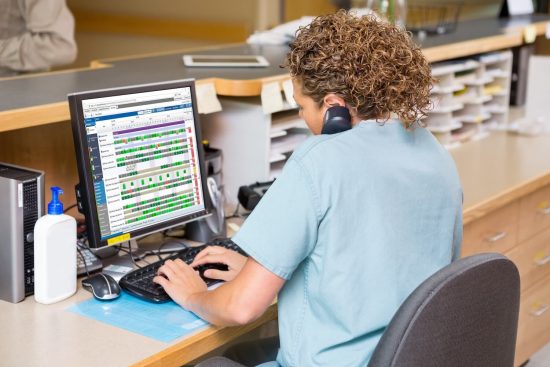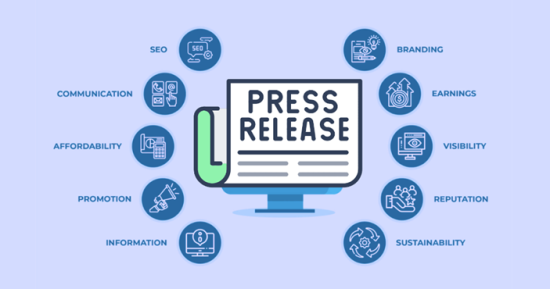
Did you know that over 50% of small businesses in the United States rely on some form of financing to fuel their growth and operations? When it comes to securing that crucial funding, entrepreneurs have a choice between secured and unsecured business loans. The decision can have a significant impact on the terms, costs, and risks involved in the borrowing process. The confusions about is a small business loan secured or unsecured will solve by reading this blog.
Small business loans can be either secured or unsecured, each with its own advantages and disadvantages. Secured business loans require the borrower to provide collateral, such as real estate, business assets, or personal assets, to back the loan. If the borrower defaults, the lender can seize the collateral. Unsecured business loans, on the other hand, do not require any collateral and are based solely on the borrower’s creditworthiness. However, unsecured loans typically have higher interest rates and stricter requirements . Choosing between a secured or unsecured loan depends on factors like the borrower’s credit score, available assets, and the specific needs of the business.
Understanding Secured and Unsecured Business Loans

When it comes to financing a small business, entrepreneurs have the option of choosing between secured and unsecured loans. The key difference between these two loan types lies in the requirement of collateral. Understanding the nuances of secured and unsecured business loans can help you determine the best financing solution for your [what is an example of a secured and unsecured loan?] specific needs.
Secured Business Loans Require Collateral
Secured business loans require the borrower to provide collateral, such as real estate, business equipment, or other valuable assets, to back the loan. This collateral serves as a form of security for the lender, ensuring that they can recoup their losses in the event of a [what is the minimum cibil score for msme loan?] default. If the borrower is unable to make the loan payments, the lender has the right to seize the collateral and sell it to recover the outstanding balance.
Unsecured Business Loans Rely on Creditworthiness
In contrast, unsecured business loans do not require any collateral. Instead, lenders assess the borrower’s creditworthiness, including their credit score, income, and overall financial health, to determine the loan terms. Unsecured loans typically [how to get a 1 crore loan without collateral?] come with higher interest rates and stricter eligibility requirements, as the lender is taking on a higher level of risk without the safety net of collateral.
Understanding the key differences between secured and unsecured business loans can help you make an informed decision about the best financing option for your small business.
The Difference Between Secured and Unsecured Loans
The main distinction between secured and unsecured loans lies in the requirement of collateral. Secured loans are backed by collateral, which the lender can seize if the borrower defaults on the loan. This collateral can take the form of real estate, business assets, or personal property. On the other hand, unsecured loans do not require any collateral. Instead, lenders rely on the borrower’s creditworthiness and overall financial health to determine the loan terms. Unsecured loans typically have higher interest rates and stricter requirements since the lender is taking on more risk without the safety net of collateral.
Secured Loans: Collateral as Security
Secured business loans are those where the borrower must provide collateral to secure the loan. This collateral can be in the form of real estate, such as commercial property or the borrower’s personal residence, or it can be business assets like machinery, vehicles, or inventory. If the borrower is unable to repay the loan, the lender has the right to seize the collateral to recoup their losses. The presence of collateral allows lenders to offer more favorable terms, such as lower interest rates and higher borrowing limits, to the borrower.
Unsecured Loans: No Collateral Required
Unsecured business loans, on the other hand, do not require any collateral from the borrower. Instead, lenders focus on the borrower’s creditworthiness, income, and overall financial health to determine the loan terms. Since unsecured loans carry more risk for the lender, they typically have higher interest rates and stricter eligibility requirements compared to secured loans. Borrowers with a strong credit profile and stable financial situation may be more likely to qualify for unsecured business loans, while those with lower credit scores or limited assets may be better suited for a secured loan option.
| Secured Loans | Unsecured Loans |
|---|---|
| Require collateral, such as real estate, business assets, or personal property | Do not require any collateral |
| Lenders can seize the collateral if the borrower defaults | Lenders rely solely on the borrower’s creditworthiness |
| Typically have lower interest rates and higher borrowing limits | Typically have higher interest rates and stricter requirements |
| Suitable for borrowers with lower credit scores or limited assets | Suitable for borrowers with strong credit profiles and stable finances |
Types of Collateral for Secured Business Loans
When securing a business loan, lenders may accept a variety of assets as collateral. The type of collateral can have a significant impact on the loan terms, such as the interest rate and borrowing limit. Let’s explore the three main categories of collateral that are commonly used for secured business loans.
Real Estate as Collateral
One of the most common forms of collateral for secured business loans is real estate. This can include the borrower’s commercial property or even their personal residence. Lenders view real estate as a valuable, tangible asset that can be seized in the event of default. The value of the real estate must be sufficient to cover the loan amount, making it a desirable option for both the lender and the borrower seeking a secured loan.
Business Assets as Collateral
In addition to real estate, lenders may also accept the borrower’s business assets as collateral for a secured loan. This can include machinery, vehicles, inventory, or other equipment used in the day-to-day operations of the company. The value of these assets must be appraised and verified to ensure they can adequately cover the maximum amount of unsecured loan if the borrower defaults.
Personal Assets as Collateral

In some cases, lenders may also accept the borrower’s personal assets, such as their home or car, as collateral for a secured business loan. This can be particularly useful for small business owners who may not have sufficient business assets to use as collateral. However, it’s important to note that using personal assets as collateral can put the borrower’s personal finances at risk if they are unable to repay the loan. Lenders like Bajaj Finance often require this type of collateral for their secured business loan offerings.
Advantages and Disadvantages of Secured Business Loans
Secured business loans offer several advantages, including lower interest rates and higher borrowing limits compared to unsecured loans. The collateral backing the loan allows lenders to take on more risk, resulting in better loan terms for the borrower. For example, a secured loan can be an excellent option for businesses seeking a loan amount up to the income tax limit for unsecured loans, such as a personal loan.
Lower Interest Rates and Higher Borrowing Limits
The primary advantage of a secured business loan is the potential for lower interest rates and higher borrowing limits. Since the lender has the added security of collateral, they are often willing to offer more favorable terms to the borrower. This can be particularly beneficial for businesses that need to access a larger amount of capital, such as those seeking secured loans for expansion or major equipment purchases.
Risk of Losing Collateral in Case of Default
However, the main disadvantage of secured loans is the risk of losing the collateral if the borrower defaults on the loan. Examples of secured loans in business include commercial mortgages, equipment loans, and inventory financing. If the borrower is unable to make the payments, the lender can seize the collateral, such as real estate or business assets, to recoup their losses. This can be a significant financial burden for the borrower, who may lose valuable assets that were used as collateral.
Ultimately, the decision to pursue a secured or unsecured business loan, such as a personal loan or a credit card, should be based on a careful analysis of the business’s financial situation, credit history, and long-term goals. By understanding the advantages and disadvantages of each loan type, small business owners can make an informed decision that supports the growth and success of their company.
Pros and Cons of Unsecured Business Loans
Unsecured business loans offer a unique financing option for entrepreneurs who may not have the collateral required for traditional secured loans. The primary advantage of this loan type is the absence of any collateral requirement, which means borrowers do not risk losing valuable assets like real estate or business equipment if they default on the loan.
No Collateral Required
One of the most significant benefits of an unsecured business loan is the convenience of not having to provide collateral. This can be particularly appealing for small business owners who may not have significant assets to use as security. Without the need to pledge collateral, borrowers can access the funds they need to finance their operations or investments without the risk of losing personal or business property.
Higher Interest Rates and Stricter Requirements
While the lack of collateral is a major advantage, unsecured business loans often come with higher interest rates and more stringent eligibility requirements compared to their secured counterparts. Lenders take on more risk with unsecured loans, so they typically require borrowers to have a higher credit score, stronger financial history, and potentially personal guarantees to secure the loan. This can result in higher monthly payments and more stringent loan terms for the borrower.
In summary, unsecured business loans offer a flexible financing option for small businesses, but the trade-off is often higher costs and more stringent requirements. Borrowers must carefully weigh the pros and cons to determine if an unsecured loan is the right fit for their business needs and financial situation.
Is a Small Business Loan Secured or Unsecured?

Whether a small business loan is secured or unsecured depends on the specific needs and circumstances of the business. Factors to consider when determining the right loan type include the business’s credit score, available assets for collateral, and the intended use of the loan funds.
Determining the Right Loan Type for Your Business
Secured loans may be a better option for businesses with lower credit scores or those seeking more favorable loan terms, such as lower interest rates and higher borrowing limits. These loans are backed by collateral, which can be in the form of real estate, business assets, or personal property. On the other hand, unsecured loans may be a better fit for businesses that lack sufficient assets to use as collateral or need faster access to funding. Unsecured loans are based solely on the borrower’s creditworthiness and do not require any collateral.
Factors to Consider: Credit Score, Available Assets
When evaluating the right loan type for a small business, it’s important to consider the company’s credit score and the availability of assets that can be used as collateral. Businesses with strong credit and ample collateral may benefit from the lower interest rates and higher borrowing limits of a secured loan. Conversely, businesses with limited credit history or few assets may find an unsecured loan more accessible, despite the potential for higher interest rates and stricter requirements.
Ultimately, the decision between a secured or unsecured loan should be based on a careful analysis of the business’s financial situation and long-term goals. By understanding the pros and cons of each loan type, small business owners can make an informed choice that supports the growth and success of their company.
Alternatives to Traditional Business Loans
While secured and unsecured business loans are popular financing options, small businesses may also consider alternative routes to funding their operations. One such alternative is the use of personal loans for business purposes. Though personal loans may come with higher interest rates, they do not require collateral, making them a viable choice for businesses that do not qualify for a traditional business loan.
Personal Loans for Business Purposes
Personal loans can be a useful financing tool for small businesses, providing access to capital without the need for collateral. While personal loans typically have higher interest rates compared to business-specific loans, they can be a practical solution for businesses that lack the necessary assets or credit history to obtain a traditional secured or unsecured business loan. Entrepreneurs can leverage personal loans to cover a variety of business expenses, from equipment purchases to working capital needs.
Business Credit Cards as Financing Option
Another alternative to traditional business loans is the use of business credit cards. These financing tools offer access to revolving credit that can be used to fund various business expenses, from office supplies to travel costs. While business credit cards often have higher interest rates than loan products, they can be a valuable tool for managing cash flow and building business credit. Businesses should carefully evaluate the terms and fees associated with business credit cards to ensure they are a suitable financing option for their specific needs.
Preparing for a Small Business Loan Application
Securing a small business loan, whether it’s a secured or unsecured loan, requires thorough preparation. Before applying, entrepreneurs should gather all the necessary documents and information to present a comprehensive picture of their business to potential lenders. This typically includes financial statements, tax returns, business licenses, and details about the intended use of the loan funds.
Required Documents and Information
To increase the chances of approval, small business owners should have the following documents readily available:
- Financial statements, including balance sheets, income statements, and cash flow statements for the past 1-3 years
- Business tax returns for the past 1-3 years
- Personal tax returns for the business owner(s)
- Business licenses and registration documents
- Details on the purpose of the loan, such as expansion plans, equipment purchases, or working capital needs
- Information about the business’s CIBIL score, which is a key factor in determining the minimum CIBIL score for an MSME loan
Comparing Lenders and Loan Options

Once the necessary documentation is gathered, small business owners should research and compare different lenders and loan options to find the best fit for their needs. Factors to consider include:
| Loan Amount | Interest Rates | Repayment Terms | Collateral Requirements |
|---|---|---|---|
| The desired loan amount, which may range from a few thousand dollars to over 1 crore for larger businesses | The interest rates charged by different lenders, which can vary significantly between secured and unsecured loans | The length of the repayment period, which can range from short-term (1-3 years) to long-term (5-10 years) | Whether the loan requires collateral, such as real estate or business assets, or is an unsecured loan |
By thoroughly preparing the loan application and understanding the various financing options, small business owners can increase their chances of securing the right type of loan, whether it’s a secured or unsecured business loan, to support the growth and success of their company.
To Sum Up
Overall, small business loans can be either secured or unsecured, each with its own advantages and disadvantages. Secured loans require collateral, such as real estate or business assets, while unsecured loans rely solely on the borrower’s creditworthiness. The choice between a secured or unsecured loan should be based on factors like the business’s credit score, available assets, and the intended use of the loan funds.
Regardless of the loan type, it’s essential for small business owners to thoroughly research their options, prepare the necessary documentation, and compare lenders to find the financing solution that best meets their needs. By understanding the differences between secured and unsecured business loans, entrepreneurs can make an informed decision that supports the growth and success of their company.
When it comes to whether a secured loan is good or bad, the answer depends on the specific needs and circumstances of the business. Secured loans can offer lower interest rates and higher borrowing limits, but they also come with the risk of losing collateral in case of default. Unsecured loans, on the other hand, do not require collateral but typically have higher interest rates and stricter requirements.
Ultimately, the choice between a secured or unsecured loan should be based on a careful analysis of the business’s financial situation and long-term goals. By weighing the pros and cons of each option, small business owners can make an informed decision that aligns with their unique needs and supports the growth and success of their enterprise.
FAQ: Understanding Secured vs. Unsecured Small Business Loans
What type of credit Is a Small Business Loan Secured or Unsecured?
A small business loan can be either type of credit: secured, which requires collateral, or unsecured, which does not. While unsecured loans usually come with higher interest rates, they offer entrepreneurs flexibility and control over their financial choices, depending on the lender’s terms and the borrower’s financial situation.
Which type of small business loan is more accessible, secured or unsecured?
A: Secured small business loans are usually simple to obtain because they pose less risk to lenders, who can claim the collateral if the loan is not repaid. This provides a sense of security and confidence to small business owners, knowing that their assets are protected.
Are interest rates higher for unsecured small business loans?
Unsecured small business loans usually have higher interest rates because they present a greater risk to the lender than secured loans.






